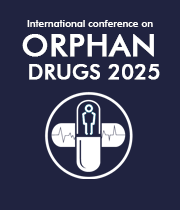Clinical Research and Developments
A rare disease, often known as an orphan disease, is a medical disease that only affects a small percentage of the population. A pharmacological agent developed specifically to treat an orphan disease is known as an orphan drug. The journey from the discovery of a new drug to its commercialization is lengthy (10 years on average), costly (tens of millions of euros), and fraught with risk (among ten molecules tested, only one may have a therapeutic effect). The development of a drug to treat a rare condition does not allow for the recovery of the money spent on research. Over the previous two decades, the percentage of new medicines approved for orphan drugs has risen considerably. Approximately 500 orphan designated medications have been approved for the treatment of a variety of oncological, metabolic, hematologic, immunologic, infectious, and neurological disorders. Patients with rare diseases must be kept up to date on scientific and treatment developments.
- Clinical Trial Transparency
- Data Sharing
- Global Market Opportunity

Sergey Suchkov
The Russian University of Medicine & Russian Academy of Natural Sciences, Russian Federation
Vladlen Slepak
University of Miami, United States
Harsha Rajasimha
Jeeva Clinical Trials, Inc, United States
Vladlen Slepak
University of Miami, United States
Harsha Rajasimha
Jeeva Clinical Trials, Inc, United States
Sergey Suchkov
The Russian University of Medicine & Russian Academy of Natural Sciences, Russian Federation


Title : Emerging solutions for inclusive orphan drug clinical trials management
Harsha Rajasimha, Jeeva Clinical Trials, Inc, United States
Title : Ectopically expressed olfactory receptors as an untapped family of drug targets. Discovery of agonists and antagonists of OR51E1, an understudied G protein-coupled receptor
Vladlen Slepak, University of Miami, United States
Title : Personalized and Precision Medicine (PPM) as a unique healthcare model to secure the human healthcare and biosafety among childhood
Sergey Suchkov, The Russian University of Medicine & Russian Academy of Natural Sciences, Russian Federation
Title : Orphan and rare disease emerging as a global public health priority through the view of personalized and precision medicine: How to use the latter to revolutionize pediatric services
Sergey Suchkov, The Russian University of Medicine & Russian Academy of Natural Sciences, Russian Federation
Title : Personalized and Precision Medicine (PPM) though the view of reproductive healthcare, pediatric services and natural family planning: an option for clinicians and caregivers realize the potential of genomics-informed care to secure the individualized human biosafety
Sergey Suchkov, The Russian University of Medicine & Russian Academy of Natural Sciences, Russian Federation
Title : Democratizing ASO drug discovery at La Jolla Labs
Melissa Keenan, La Jolla Labs, United States